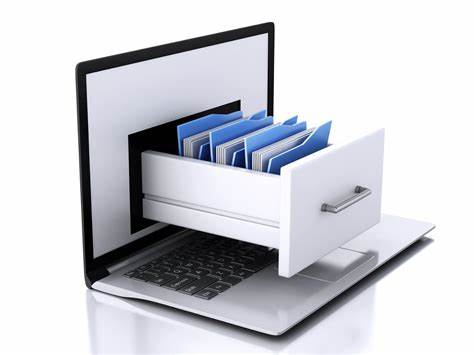
Over time our computers can become cluttered and unorganized. This makes it hard to find what we are looking for and makes backups more difficult because files may be scattered around in different locations.
Set aside a block of time to put everything in order.
Delete Unused Files
Sort through your files and delete anything that you no longer need. Don’t forget the downloads folder, the downloads folder contains everything you have downloaded from the internet, including PDF files, email attachments, screenshots, program applications, videos and more.
Create Folders
Create sub-folders inside of your documents folder to organize your files. Then move the files into the appropriate folders. Think of your documents folder as a file drawer and the folders you create inside of it as folders in that drawer.
Setup your computer files to match your paper filing system. For example, if you have a paper file folder named insurance information and you receive electronic statements and other documents from your insurance company name your computer folders the same as the paper copy. This makes it easy to find and file your documents.
Folders are a great way to stay organized but don’t get carried away creating folders, too many folders can become overwhelming and cumbersome. Each folder you create should contain at least 10 to 20 files. If you have folders with just one or two files inside rethink your folder structure.
The goal is to have your files (document, photos, etc.) conveniently stored in designated folders.
Use Consistent File Names
Use a consistent, descriptive file naming system. For example, if you are saving a document from your doctor’s office you might use the doctors name, what is contained in the file, for instance “lab results” and add a date at the end. This will make it easier to find what you are looking for.
If you come across older files with obscure names rename them to something that makes sense and is consistent with your current file naming policy.
File As You Go
Be intentional with each file you save and create, name them properly and file them in the appropriate location each time to prevent clutter and chaos.
Perform Regular Backups
Backing up your computer is extremely important, although it is unpleasant to think about computer hard drives fail and having a backup ensures that you can recover your data if your original is lost. Set up a regular automated backup schedule, ideally you want three copies of all your files. The original copy and two other copies in 2 separate locations. Keep one backup in a fireproof safe. Keep another backup at a trusted friends or relatives house or use a secure online file storage site.